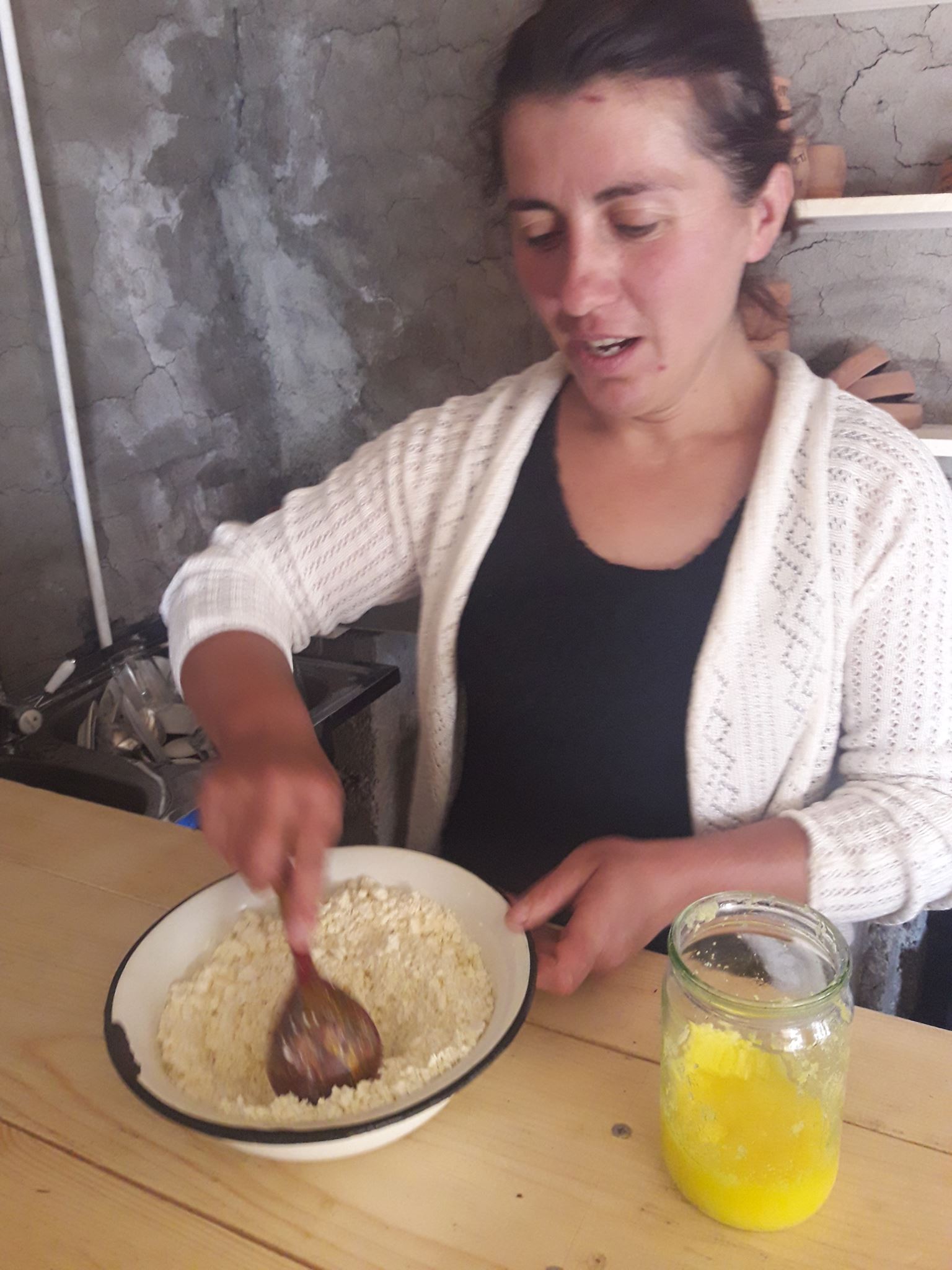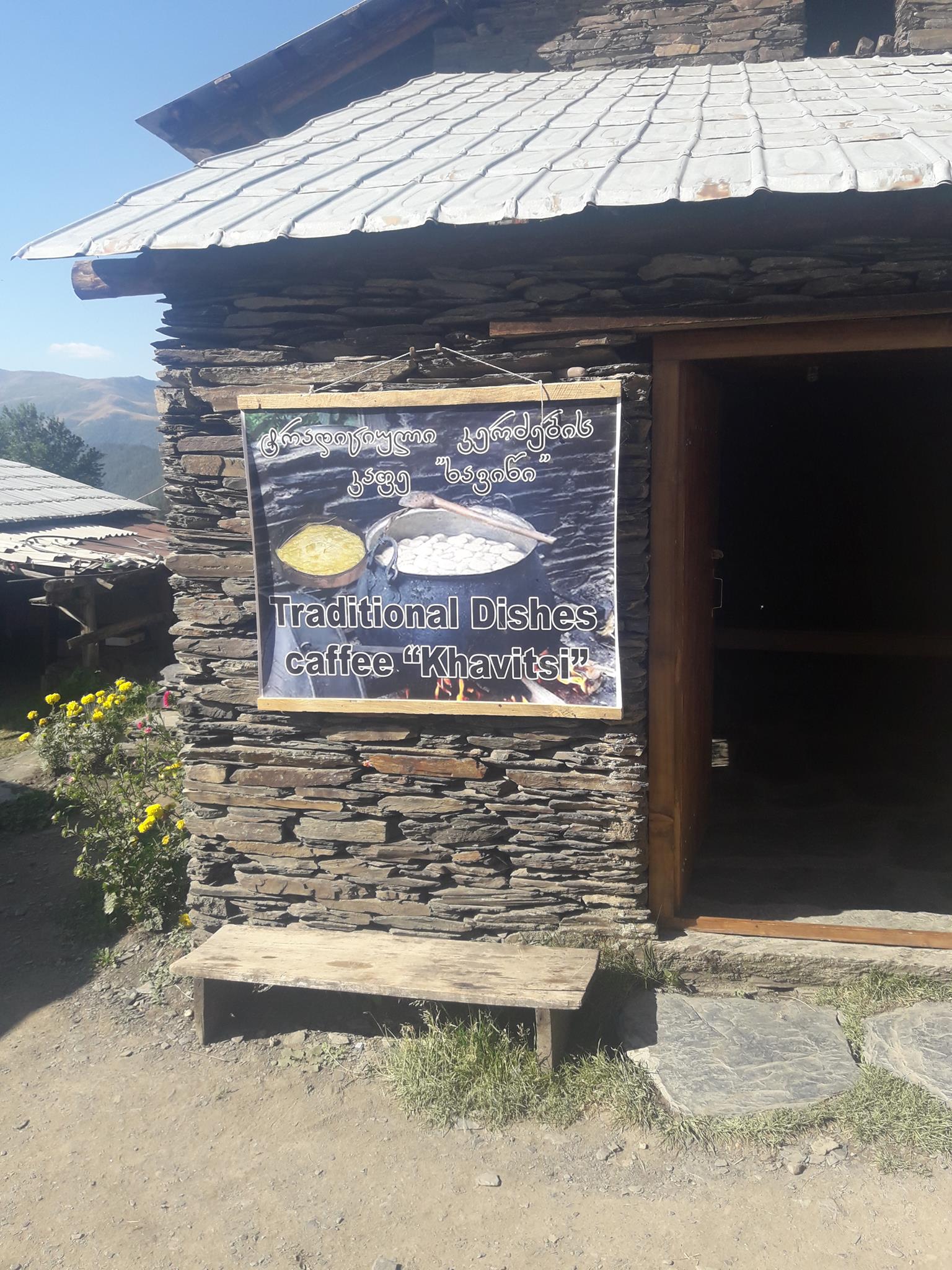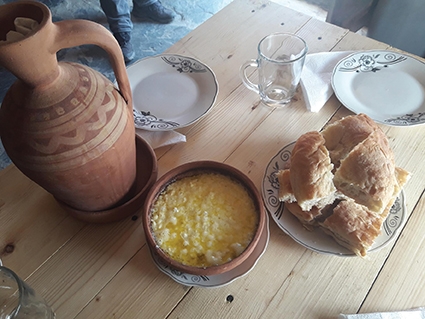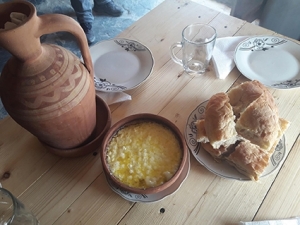Khavitsi is the New Fondue
For the last ten years or so, Tusheti has become one of the most popular destinations for tourists arriving in Georgia. The “Rediscovery” of one of Georgia’s most beautiful mountainous regions has been an amazing success story, indeed, years ago, Tusheti, almost bereft of the technical benefits of the modern day era, to an extent where electricity and hot water were considered a luxury, was on a brink of being abandoned. Today, however, those who travel there enjoy the cozy comforts of local guesthouses, traditional Tushetian cuisine and fresh, organic produce of the local harvest.
One would argue that the hallmark of modern know-how arriving to Tusheti was the introduction of solar energy usage. A project by the Czech Development Agency saw numerous solar panels and thermal batteries installed in Tushetian villages, which in turn gave them the first real incentive to start their own business as local guesthouse operators. Thus, a circle of jobs was created, all reliant upon each other. The importance of this cannot really be overstated: on one hand, it’s key for realizing Tusheti’s touristic potential, while on the other, it’s vital for keeping people up there, not abandoning their homes in this beautiful place.
Marina Ghuzarauli lives in village of Omalo. For about seven years now, her family has been producing cheese. Problems, especially at the beginning, were aplenty, while production was limited. However, through the efforts of the Czech Development Agency, and most notably, another Czech NGO – Caritas Czech Republic in Georgia, things have steadily changed for the better, as Tushetians got the hang of the modern know-how, the positive results didn’t take long to show up.
Today, Marina and her family have 16 cows, each of them yielding around 15 litres of milk, which in turn results in small-scale, yet flourishing cheese produce. Not so long ago, their family started a new business – they opened up, well, one could call it a Khavitsi spot, Georgian’s call it Sakhavitse (a place where Khavitsi is made), but for those who don’t know what Khavitsi is, it’s an incredibly delicious traditional Tushetian dish, or rather, a delicatessen. What’s it like? Well…

Khavitsi, or as it is sometimes called, Datkhuri, is made of curd. To cook it, you melt and boil the butter, strew a generous pinch of curd and mince them together, until the mass starts to boil too. Then you put it on the fire (or oven, if you’re intent on cooking it at home), and serve it. Sounds simple? Well, it might be so, but it’s beyond delicious. Resembles the staple of French cuisine, the famed fondue; but as the local French tourists readily attested on our visit to Marina’s Sakhavitse, tastes better than its more famous French cousin. It’s a wonderful energizer too, and if you already changed your Snicker’s for Churchkhela, this might the next smart move on your list.
Sakhavitse is only the beginning of greater things to come, though – buoyed by recent success and continual support from the Czech side, Marina plans to take up the family guesthousing business too, with the intent of building the whole brand around the Tushetian dish.

“Czech assistance has been invaluable. Without them, we wouldn’t accomplish what little we did with our own meagre means,” Marina says.
However, smart folks at CCRG think that financial assistance is just one dimension of the support they are lending: the most important part of it is giving the locals motivation and incentive to start their own ventures.
“Solar panels, or other modern know-how – this all translated into increased motivation, enthusiasm and self-confidence. When they have the incentive to actually start new ventures themselves, they invest in local production and family business, which they seem to be very capable at. The Tushetians are determined, crafty people, one little nudge, one helping hand and they start mobilizing their own means to invest in themselves,” Anzor Gogotidze told us, Project Manager at Caritas Czech Republic in Georgia.
By Vazha Tavberidze












